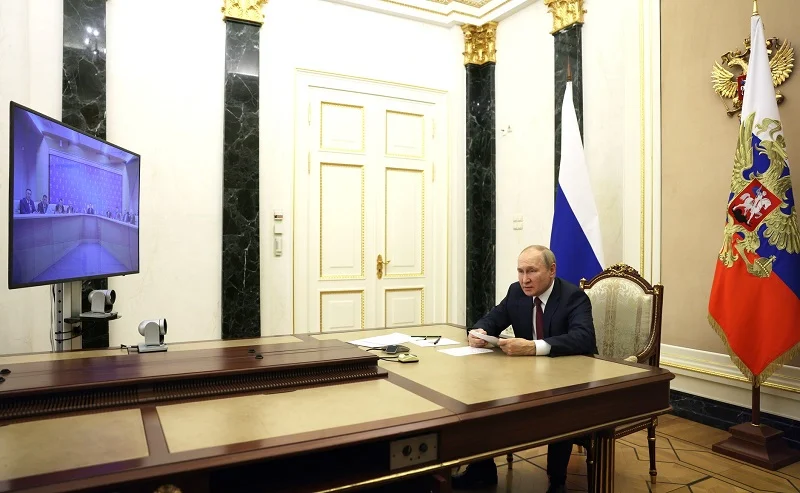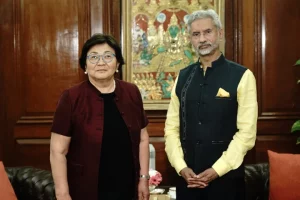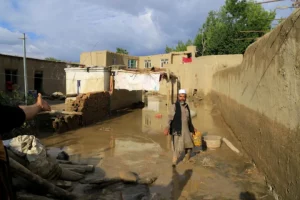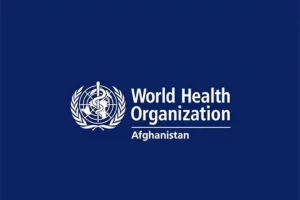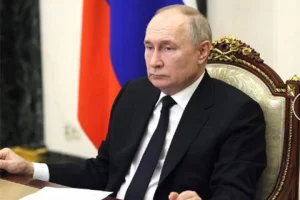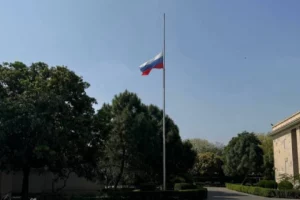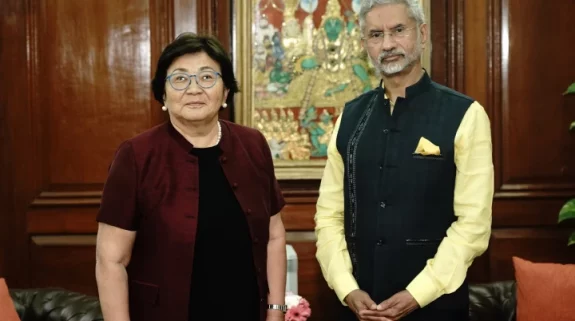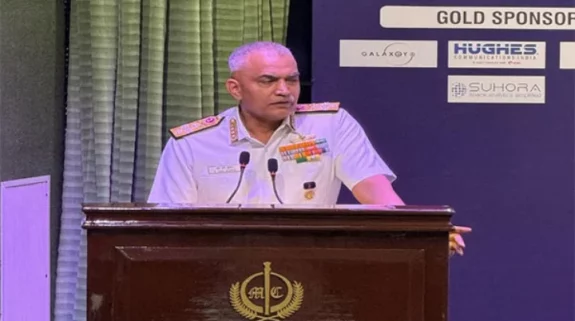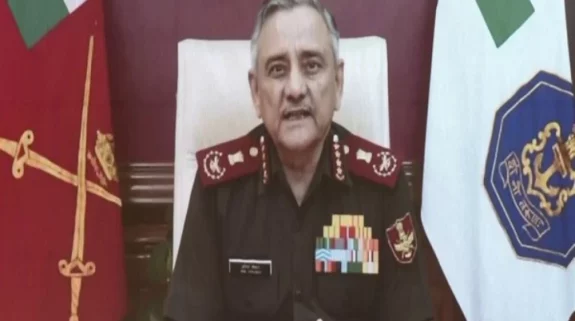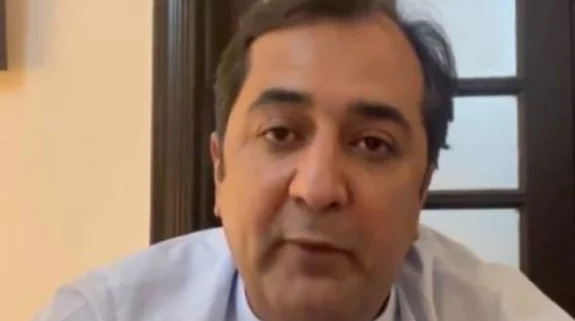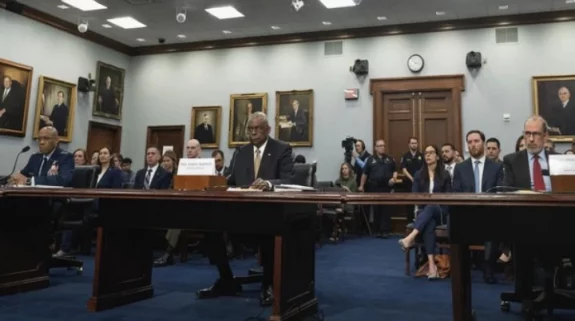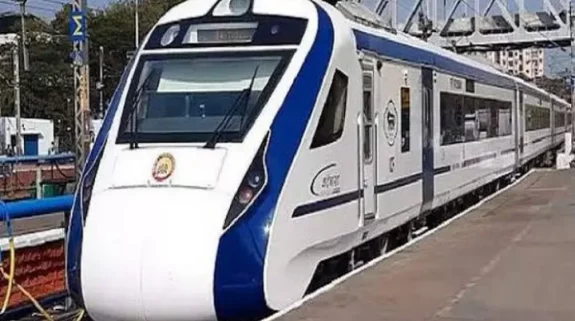Russian President Vladimir Putin has once again spotlighted the presence of terrorist and extremist groups in Afghanistan which could destabilise the situation in neighbouring countries.
Addressing the heads of security agencies and intelligence services of the Commonwealth of Independent States (CIS) in Moscow Thursday evening, Putin detailed how continuing instability in Afghanistan has wider ramifications for the entire region.
“A difficult situation – you know this perfectly, better than anyone else – has developed in Afghanistan. Terrorist and extremist groups continue to operate actively there. And confirmation of this is the bloody terrorist attack that took place on September 5 near the Russian embassy in Kabul, which claimed the lives of our citizens,” he told the gathering of top security officials from the former countries of the Soviet Union.
The Russian President stated that it is “obvious” that the international terrorists on Afghan territory can build criminal plans in relation to border countries, including the CIS states.
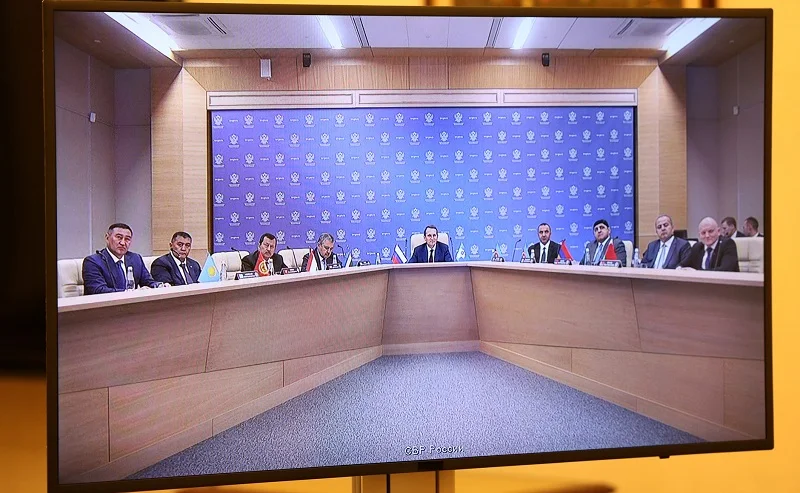
“For example, (they will) try to recruit accomplices and create new cells or reactivate the ‘sleepers’, supply weapons to the militants. All such attempts must be responded to in a timely manner, including by actively using the potential of the CIS Antiterrorist Centre,” he added in his statement made via videoconference.
Putin’s deep concerns about the Afghan situation came before Friday’s 18th meeting of the Heads of Security Agencies and Intelligence Services of the CIS Member States on Intelligence Activities being hosted by Moscow.
The event, which will be opened by Russian Foreign Intelligence Service chief Sergei Naryshkin, is being attended by delegations from Azerbaijan, Armenia, Belarus, Kazakhstan, Kyrgyzstan, Tajikistan and Uzbekistan.
On September 5, a terrorist activated an explosive device in the direct vicinity of the entrance to the Consular Department of the Russian Embassy in Kabul, killing two employees of the diplomatic mission and injuring many citizens of Afghanistan as well.
It is not the first time that Russia has urged the CIS countries to focus more on its borders due to the formation of many common security threats.
IndiaNarrative.com has previously reported about Putin admitting that terrorists on the warpath from conflict zones in Syria and Iraq are being redirected to Afghanistan after the Taliban’s return.
“Militants with experience in waging war in Syria and Iraq are being drawn there. So, it is possible that terrorists might try to destabilise the situation in neighbouring countries, including the CIS countries, and go as far as starting to expand outrightly,” Putin had said at the meeting of CIS Heads of Security Agencies and Intelligence Services last October.
Moscow remains worried that terrorists from Afghanistan can penetrate into the states of the Central Asian region, and from there into Russia through the Russian-Kazakh section of the state border.
With the number of hotbeds of military-political instability near its borders increasing, Putin, in his address, also targeted the West by accusing it of “working out scenarios for fomenting new conflicts” in the CIS space.
“…We already have enough of them. It is enough to look at what is happening now between Russia and Ukraine, what is happening on the borders of some other CIS countries. Of course, all this is the result of the collapse of the Soviet Union, this is all understandable. But the risks of destabilization are still growing, including the risks of destabilization of the entire Asia-Pacific region,” he said.






